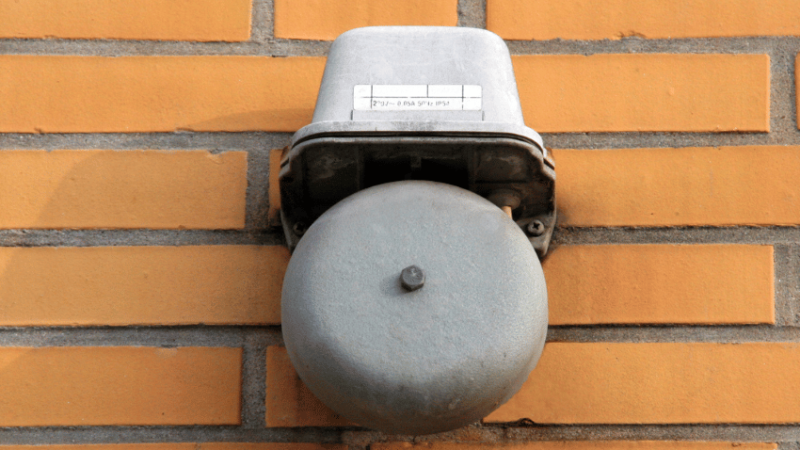Despite Great Pressures in Education There’s Still Plenty to Celebrate about what Classroom Teachers are Doing

No matter what is piled on the profession, there’s still plenty to be joyful about with life at the chalkface, if we remember to look for it, says Vic Goddard – #JustLetMeTeach

- by Vic Goddard
- Executive principal, author and star of Educating Essex

To support our new #JustLetMeTeach campaign, we have free primary and secondary teacher packs to download with practical advice to help you reduce your workload, refresh your teaching, and reignite a love of learning for you and your students.
This is probably the worst time of year to be trying to highlight just how much wonderful teaching goes on in our classrooms on a daily basis – but nonetheless, I’m going to try.
Of course, it would be foolish not to recognise the extra strain that schools – and more specifically, subject teachers – have had to endure over the last few years.
It is also impossible to ignore that some less than optimal decisions around pedagogy may have been taken by school leaders, based partly on limited knowledge of the new exam content, but mainly because old habits die hard and us headteachers are a little bit controlling at times!
However, I’ve recently been thinking about the ratio of professional autonomy to prescription our teachers have at Passmores. Just to give some context, our SLT have long since given up standing in front of fellow professionals, who teach two or three times as many lessons as they do, to tell them how to do it.
Over the last four or five years we have moved to a ‘leader of pedagogy’ model, where those doing it every day are given the opportunity to organise the sharing of current best practice in the school, alongside relevant research.
I feel this has been an important message to send to our teachers; that we recognise the skills that they use and develop every day in delivering the best learning experiences possible for our young people.
Time to share
So why does it still feel like everything is a bit negative in the world of education?
I guess the easy answer is that we are having to fight on many fronts right now to be heard above the current government tactic of simply repeating the same phrases over and over again – a favourite at the moment being, ‘There is more money in the system than ever before!’ of course.
When you throw in the truly terrible performance against target for recruitment, which is being spun to be ‘more about retention’ (thus conveniently letting the policy makers off the hook a little bit), then you can understand the tendency to moan.
Despite all this, though, I believe it’s important that as leaders, we not only see, but also respond to the excellent classroom practice that already exists in our schools, on a daily basis.
At a time of year when just about everyone in education is feeling extra pressure we must find the time to do something other than apply a deficit model to how we talk about our profession. I have seen, through social media, teachers – new and ‘less new’ – sharing what they are doing, and have been blown away by it.
I have seen subject communities sharing their work with each other to support other colleagues and, therefore, young people. I have also, by the way, seen teachers – new and ‘less new’ – be shot down in flames because of what they have shared.
I always feel this kind of sharp, binary response is rather like criticising a piece of art by saying, “Well, I wouldn’t have painted it like that.” Of course, we are all entitled to our opinions, but I’m not sure how helpful such interactions really are.
Amazing stuff I know that the whole ‘teaching as a science versus it being an art’ conversation is often divisive, but right now we are in the middle of a seismic shift.
This week the EEF released its latest report on meta-cognition and self-regulation; if you haven’t seen it yet but want to know more @olivercaviglioli has produced a great infographic summary.
I was genuinely excited to read it and share it across the school.
That kind of engagement with research just didn’t happen back in the early days of my career, but now our jobs are increasingly focused on the art of applying science – or, as I prefer to put it, the art of applying science and experience – and I see that as a hugely positive development.
In fact, when we look at how much progress has been made in gaining a greater understanding of the way students learn, there’s a lot to celebrate.
The words in the last edition of Teach Secondary about #justletmeteach really resonated with me – I am sure that if we all work together we can make teaching an even more desirable profession (despite whatever this government throws at us) by remembering to recognise, and talk about, the amazing stuff already going on in schools all over the country, every day.
Vic Goddard (@vicgoddard) is headteacher at Passmores Academy – as seen on Channel 4’s Educating Essex – and is the author of The Best Job in the World (Independent Thinking Press, £14.99).
We’re sharing this article as part of our #JustLetMeTeach campaign, in which we’re inviting teachers to share the moments when they’ve been able to pass on what excites them about their subject, and what has excited their pupils too – whether or not it helps children pass a test.

Get involved by using the #JustLetMeTeach hashtag on social media, or get in touch with us on our Twitter and Facebook pages.










